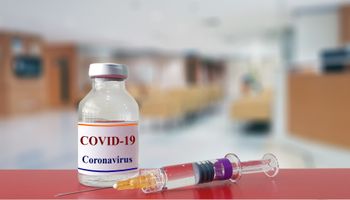Alprazolam:
Alprazolam is used as an active ingredient for the treatment of anxiety and panic disorders. This psycholeptic, usually available in tablet form, has an anxiety-relieving, sedative effect and relaxes the muscles. In the DACH region, alprazolam is available by prescription (e.g.: in Austria by psychotropic regulation).
Effects and intake:
As an active substance belonging to the group of benzodiazepines, alprazolam has a sedative and anxiety-relieving effect. The best known representative of this group of anxiolytics, i.e. anxiety relievers, would be diazepam or colloquially also Valium. Alprazolam can increase the effect of GABA receptors (i.e. nerve messengers) in our brain. This neurotransmitter inhibits the excitation of nerve cells, therefore this has an anxiety-relieving and calming effect on the human body.
This active ingredient is usually taken in the form of tablets and enters the bloodstream in the intestines. Subsequently, the liver processes alprazolam to the actual active form (α-hydroxyalprazolam), which then reaches the central nervous system, where the effect lasts between 12 and 15 hours.
Generalized anxiety disorder:
These anxiolytics are used to treat a long-lasting anxiety that is not limited to specific objects or situations. The patients being treated suffer from mental and physical restlessness, tension headaches, tremors and worry. In such generalized anxiety disorder, alprazolam has been shown to relieve the prevailing anxiety when used properly.
Rebound Effect:
It is important to note when using this drug that it should not be abruptly discontinued, otherwise withdrawal symptoms such as perceptual disturbances or psychotic symptoms, as well as original symptoms, may occur.
Comparative Review:
A, 2018 in-depth review of alprazolam published in the Journal of Addiction Medicine examines this agent in terms of taking, abusing, and withdrawing it. Indications (i.e., indication of appropriateness of medical treatment) of alprazolam for its effect on pregnant women were also evaluated in this article.
The article analyzed several studies, including a review of 84 studies (Jonas and Cohon, 1993) in which the agent was found to be superior to placebo in terms of antidepressant effects in 8878 study participants and as effective as all comparative anxiety relievers such as Valium. 3574 participants were treated with the agent, 3666 with another comparative anxiety reliever, and 1638 with a placebo. Data from multiple studies showed that the onset of an antidepressant effect was significantly faster with alprazolam compared to other agents, and alprazolam was as well tolerated as the rest of the comparator drugs.
However, the authors of the article concluded that the studies relevant to this review were heterogeneous, were not of particularly good quality, and looked exclusively at short-term effects. In addition to this, it was not clear whether the clinical effect of the drug was due to a specific or a non-specific antidepressant effect on parallel anxiety and sleep problems.
Abuse:
All double-blind, placebo-controlled studies examined have shown that benzodiazepines can produce reinforcing effects in those people who indicate a tendency to abuse them in association with their history of drug use.
During Pregnancy:
Regarding the use of alprazolam during pregnancy, there are inconsistencies about the cause of effect, which is why a careful risk-benefit analysis should be made if prescribing the drug for pregnant or lactating women is being considered.
Conclusion:
It is also worth noting that the number of clinical trials with alprazolam decreased significantly since the advent of newer antidepressants. Furthermore, there are no clinical trials directly comparing alprazolam or other benzodiazepines to newer antidepressants in relation to anxiety disorders, panic disorders, or depression.
The data show that alprazolam therapy is as effective as other benzodiazepines in treating anxiety and panic disorders. However, this must be considered along with patient dependence tendencies and tolerance, as well as the rebound effect.
In any case, the patient must be carefully informed about the risks, such as the possibility of dependence and withdrawal symptoms. As pointed out in the current guideline of the German Medical Association, it is important that for the prevention and treatment of drug dependence, general practitioners, specialists and especially psychiatrists should definitely work together.
Active substances:






